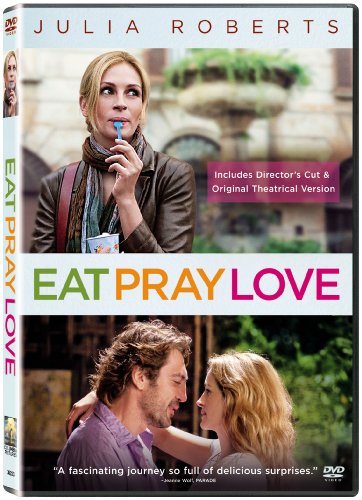All Nonfiction
- Bullying
- Books
- Academic
- Author Interviews
- Celebrity interviews
- College Articles
- College Essays
- Educator of the Year
- Heroes
- Interviews
- Memoir
- Personal Experience
- Sports
- Travel & Culture
All Opinions
- Bullying
- Current Events / Politics
- Discrimination
- Drugs / Alcohol / Smoking
- Entertainment / Celebrities
- Environment
- Love / Relationships
- Movies / Music / TV
- Pop Culture / Trends
- School / College
- Social Issues / Civics
- Spirituality / Religion
- Sports / Hobbies
All Hot Topics
- Bullying
- Community Service
- Environment
- Health
- Letters to the Editor
- Pride & Prejudice
- What Matters
- Back
Summer Guide
- Program Links
- Program Reviews
- Back
College Guide
- College Links
- College Reviews
- College Essays
- College Articles
- Back
Eat Pray Love MAG
I am not ashamed to be inspired by the obviously inspirational. Too often the intellectual community encourages us to seek our sources of inspiration in the unlikeliest of locations. As a small bug scuttles across the floor, we are to understand our mortal purpose. Ink staining my thumb may direct me toward understanding some abstruse philosophical question. My mother's curious placement of napkins on the dinner table could really soothe my anxieties regarding the existence of a higher power. Really. It could.
We are to seek the consequences of the inconsequential. This is not a useless concept. Unfortunately, it has been beaten into a tired and overused cliché. Thankfully, humans have developed a craft that utilizes the sensational might of modern technology to inflate our stories and our lives into cocktails of mass-appealing, capitalistic art.
Take, for instance, “Eat Pray Love.” The tale is intriguing independent of any smarmy big-city marketing agent. It is as sincere as any story ever told. A forlorn divorcée searches the world for fulfillment of her spiritual, romantic, and culinary voids that are chaining her to misery.
She struggles to find her purpose in the 21st century jungle of concrete, as well as in the very human jungle of emotion. The actual fulfillment, of course, is delivered in the most romantic of packages. There is even a swarthy bachelor and ironic timing. Still, what the money-hungry movie industry was able to do with the story is special.
Hollywood has the unique ability to sensationalize nearly every aspect of human life. Elizabeth Gilbert's story speaks to this. Although leaning over a veranda and gazing across an unthinkably blue ocean at a genuinely breathtaking sunset while clasping hands with an exotic and altogether flawless Adonis of a mate may be entirely priceless, the $9.50 it cost me to see this sight through the lens of a million-dollar camera at a calculated and artistic angle holds its own value, as well. While this is probably the irreplaceable experience of a lifetime, after a day spent in a gray cubicle, it provides a brilliant contrast to the regularity and dullness that repress us all at one point or another.
The cinematization of life is not a cheapening. While “Eat Pray Love” could have benefitted from the sanitary artistic sincerity of an independent film company and its band of purists, the ultra-capitalists (who present it with mass-palatability and the pleasingly pulchritudinous smile of Julia Roberts) manage to capture life, perhaps not at its finest, but with a grandeur impossible to experience any other way. This is super-reality.
It is obviously inspirational, and I like it.
Similar Articles
JOIN THE DISCUSSION
This article has 2 comments.

